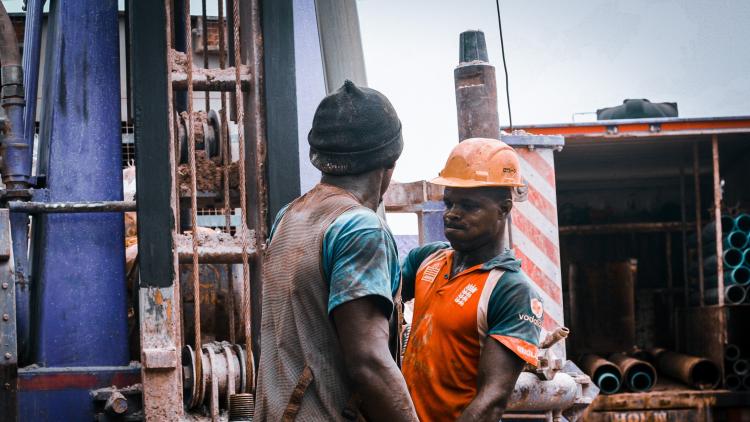Global Approaches to Peace

Key information
- Start date
- End date
- Year of study
- Any
- Duration
- Term 2
- Module code
- 15PDSH074
- FHEQ Level
- 7
- Credits
- 15
- Department
- Department of Development Studies
Module overview
This module critically examines the conceptualization of peace and the practice of various peace processes and peace building projects by global, regional, national and local actors.
Students will receive a solid historical and theoretical introduction to critical peace studies scholarship, and engage in key debates in the field. The course opens with a consideration of what the experience of violence (direct, structural and cultural) does to the human condition and different populations and then moves on to an interrogation of the various pathways to peace that scholars, communities, people, practitioners and policymakers have proposed and realized.
The course is organised around four themes:
- Knowing Peace. In this section of the module explores how different schoalrs and groups have envisioned and talked about the importance of peace and human connection. Students will examine different knowledge systems including, indigenous and aboriginal worldviews, and African cosmologies, as well as different inspirations for peace that have a religious and/or spiritual foundation;
- Fighting for Peace. The second section of the course will examine what is involved in trying to make and build peace. Student will consider, compare and contrast the breaking points, key actors, strategies, challenges, and successes of different non-violence and violent peace movements around the world;
- Peace Governance. The third section considers the relationship between, peace, and institutions at the local, state and global level, including diplomacy, international and regional intervention and education
- Enduring Peace. The module ends with a two week exploration of what it means to make peace endure debates on reparations, reconciliation, healing and forgiveness.
The module adopts a decolonial and intersectional lens to interrogating peace and peace processes globally. Firstly, it challenges the global politics of knowledge production and ways of knowing across the world by foregrounding alternative social and political imaginaries beyond Western thinkers, and beyond the Western academy. The module draws upon a diverse range of voices and scholarship, including scholarship and examples from Latin America, Sub-Saharan Africa, MENA, South East and Central Asia, Eastern Europe and Turtle Island (North America), the South Pacific and Europe. This pluriversal cannon aims to encourage students to think differently and indeed globally, in developing a theoretical, conceptual and practical understanding of peace and the processes the support and lead to peaceful nations, communities, and individuals. Secondly, while several weeks are dedicated to specific experiences (Indigenous, African and women) questions of power, identity and difference are brought to bear in each week of the module.
The module is a student-centred, interactive and experiential workshop. The module revolves around reading, discussion and active engagement. Students will engage in a variety of participatory activities, small group work, dramatic role-play, basic CR and Mediation training, and group presentations.
Objectives and learning outcomes of the module
On successful completion of this module a student will be able to:
- Understand and critically evaluate the diverse spectrum of theoretical approaches that exist to explain and categorise approaches to peace, with an emphasis on critical and global theories, and the political, historical, anthropological approaches to the study of peace and related programming strategies
- Understand and employ a decolonial, intersectional framework to investigate and research scholarly debates related to peace and conflict and critically apply the concepts and ideas to everyday experiences, current events and national and global politics
- Develop an understanding of the key actors, institutions and policy processes at various levels from the global to the local and their relationships.
- Develop an awareness of diverse approaches to peace, including knowledge of current debates on the nature of everyday peace and, resistance, activism, and social mobilisation and critiques associated with `bottom up' approaches and hybrid forms of peace
- Analyse and communicate to others the diverse ways in which people have challenged violence and injustice and promoted social and political transformation at the global and local level
- Gain basic level practical skills in conflict resolution and mediation, and peace research
Workload
Two hour seminars per week for ten weeks.
Scope and syllabus
The topics listed below are indicative of some of the main topics that will be covered in the proposed
module:
- Indigenous and African Cosmologies and Peace
- Peace Theories
- Religion, Spirituality and Peace
- Non-Violent and Violent Struggles: Protest, Disobedience and Revolt
- Building A Movement
- Conflict Resolution, Mediation
- Peace Negotiations
- External Interventions
- Reintegration and Participation
- Gendered Peace
- Peace Education
- Justice, Reconciliation and Healing and Forgiveness
- Peace Research
Method of assessment
100% coursework. Each student will be expected to submit:
- Group Presentation - Pecha Kucha (25%)
- Essay, 2700 words (75%)
Suggested reading
- Aharoni, S. 2016. Who needs the Women and Peace Hypothesis? Rethinking modes of inquiry on gender and conflict in Israel/Palestine, International Feminist Journal of Politics. pp1-19
- True, J. 2015. Winning the Battle but Losing the War on Violence. International Feminist Journal of Politics Vol. 17 , Iss. 4,554-572.
- Fagan, Kristina. "Tewatatha:wi: Aboriginal Nationalism in Taiaiake Alfred's Peace, Power, Righteousness: An Indigenous Manifesto." The American Indian Quarterly, vol. 28 no. 1, 2004, p. 12-29. Project MUSE
- Mac Ginty, R. and Oliver P Richmond. 2013. The Local Turn in Peace Building: a critical agenda for peace, Third World Quarterly, June, pp. 763-783
Disclaimer
Important notice regarding changes to programmes and modules


